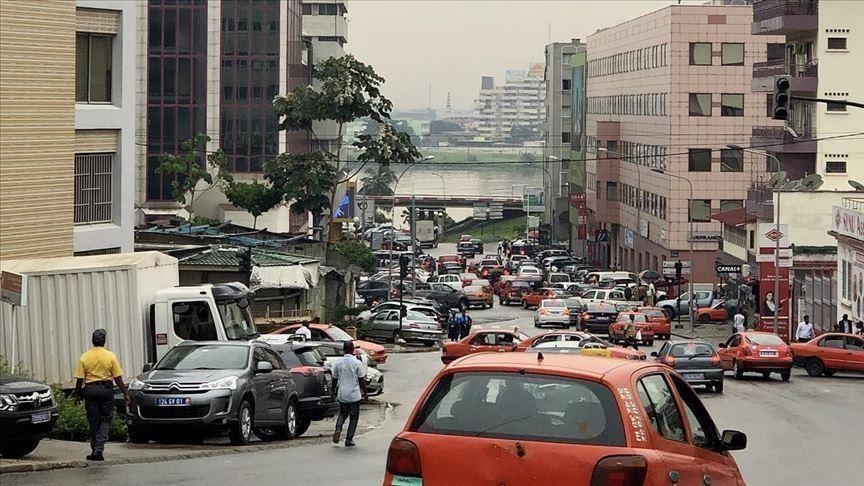
- Incumbent President Alassane Ouattara vies for 4th term after 2016 constitutional reset of term limits
- Main challengers include former first lady Simone Ehivet Gbagbo, former Commerce Minister Jean-Louis Billon
ISTANBUL
Ivorians will vote on Saturday to elect their next president, in a closely watched election seen as a test of stability and democratic confidence in one of West Africa’s most dynamic economies.
Since June, the protests have led to clashes and arrests, while a two-month ban on gatherings by non-candidates has further intensified tensions.
President Alassane Ouattara, 83, is seeking a fourth term, promising continuity in economic growth, infrastructure and security. A former IMF economist and prime minister under independence leader Felix Houphouet-Boigny, he has led the country since 2010 under the Rally of Houphouetists for Democracy and Peace (RHDP).
Ouattara’s supporters credit him with steering the Ivory Coast through recovery after years of instability. Between 2012 and 2019, the country recorded an average GDP growth rate of 8.2%, according to the World Bank – one of the fastest in Africa. Growth has largely held since the COVID-19 pandemic.
His fourth-term bid follows a 2016 constitutional reset of term limits – a move opponents argue undermines democracy.
The challengers
Ouattara faces four challengers, though opposition figures say the race is far from level.
Jean-Louis Billon, 60, a former commerce minister and businessman, represents the Democratic Congress (CODE). He has emerged as the strongest candidate, allied with former Credit Suisse CEO Tidjane Thiam’s Democratic Party of the Ivory Coast (PDCI-RDA).
Thiam, who renounced his French citizenship in March, was disqualified in April due to dual nationality – a decision that angered many in the opposition. Billon pledges inclusive governance, anti-corruption reforms and private-sector-led job creation.
Simone Ehivet Gbagbo, 76, a former first lady and wife of ex-President Laurent Gbagbo, leads the Movement of Capable Generations (MGC). Running as an independent, she focuses on social justice, women’s empowerment, rural development and health care, appealing to rural voters.
The Constitutional Council barred her husband, Gbagbo, from running, citing his criminal record under the Electoral Code. Gbagbo was arrested in 2011 on International Criminal Court (ICC) warrants charges including murder and rape. However, he was acquitted in 2019.
Ahoua Don Mello, 67, once a spokesperson for Gbagbo, is contesting as an independent after being expelled from Gbagbo’s African Peoples’ Party (PPA-CI). He campaigns for monetary reform, including abandoning the CFA franc, defense sovereignty and voter mobilization.
He argues that participation is crucial to avoid a repeat of the 2020 election boycott.
Henriette Adjoua Lagou, 69, of the Ivorian Popular Front (FPI), emphasizes reconciliation, gender justice and anti-corruption measures. A former education minister under Gbagbo, she rejects claims of alignment with the ruling party and presents herself as an independent reformer.
Divisions, history and demographic change
Ethnic divisions dated back to the 2002-2007 civil war, and the 2010 post-election crisis – which left roughly 3,000 people dead – remain entrenched, with north-south rivalries still shaping political loyalties and perceptions of power. These tensions remain closely linked to the long-standing rivalry between Ouattara and Gbagbo, whose supporters remain a potent political force in the south.
Ivory Coast, the world’s top cocoa producer, has a population of around 32 million, nearly half of whom are under 18. Women make up more than half of registered voters, and both groups are pressing for greater inclusion in economic and political life.
Security concerns persist along the northern borders, including spillover from Burkina Faso, where sporadic attacks by armed groups have raised fears of instability.
Meanwhile, debate continues over the CFA franc, a currency long tied to France, with growing calls for monetary sovereignty.
Election system and outlook
The election will be held under a two-round absolute majority system, where a candidate must secure more than 50% of votes to win outright. If no candidate achieves this, a runoff will be held between the top two contenders.
The Independent Electoral Commission (CEI) is overseeing the process and will announce provisional results within five days, with final validation by the Constitutional Council.
More than 8.7 million voters are registered, although the opposition claims this figure underrepresents the country’s adult population.
Campaigning, which ran from Oct. 10 to 23, included restrictions on state vehicle use, the publication of polls and inflammatory rhetoric.
International observers from the Economic Community of West African States (ECOWAS) and the African Union are monitoring the vote for transparency.
Limited polling data suggest Ouattara remains dominant, reflecting his 94% share of the vote in 2020.
A Messina Group survey conducted in August and September found that 66% of Ouattara’s 2020 voters would favor Thiam in a hypothetical race.
Voter turnout, which stood at over 50% in both 2015 and 2020, could be low again amid candidate exclusions and calls for boycotts.
Anadolu Agency website contains only a portion of the news stories offered to subscribers in the AA News Broadcasting System (HAS), and in summarized form. Please contact us for subscription options.







